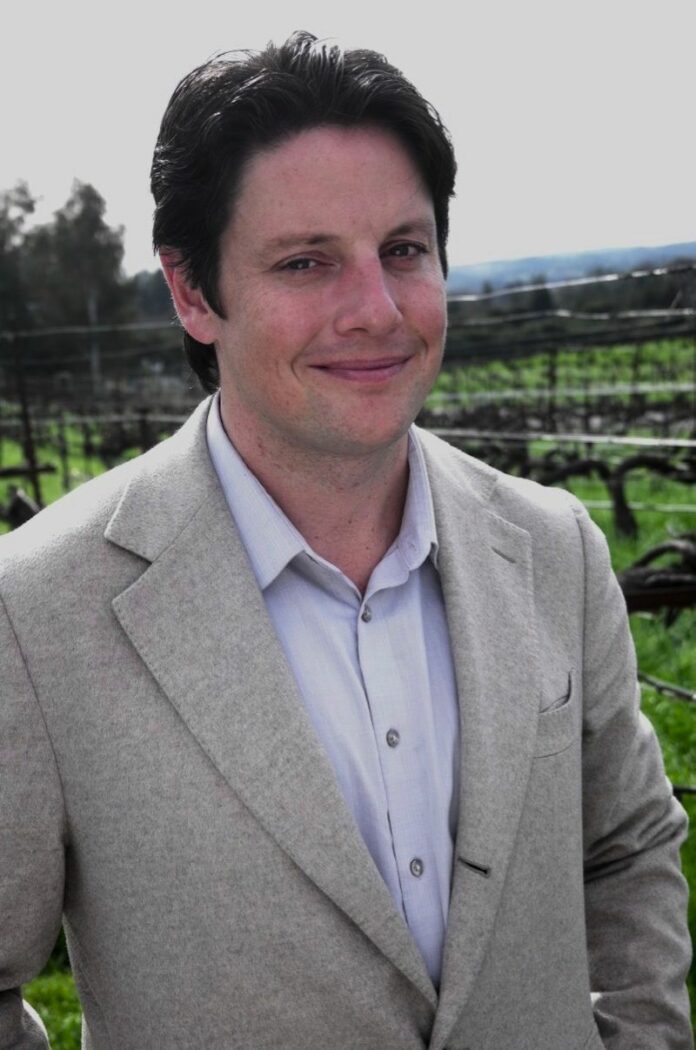The state of California’s Fair Political Practices Commission (FPPC) has informed former Windsor mayor Dominic Foppoli and the Friends of Dominic Foppoli for Mayor 2020 campaign that it has commenced an investigation into Foppoli’s campaign spending.
The letter, sent by the FPPC on July 2, notifies the Foppoli campaign of a “commission-initiated investigation regarding your committee’s potential violations of the campaign finance provisions of the Political Reform Act.”
The investigation appears to be in response to an anonymous complaint submitted on April 26 to the FPPC, alleging a series of issues, including improper use of campaign funds, campaign contributions causing conflict of interests, unlawful travel payments, advances, reimbursements or other expenditures and an unlawful gift.
“We have not made any determination about the possible violations. We are simply providing you with this information as a courtesy and may be contacting you to discuss the matter,” ends the June 2 letter from Angela J. Brereton, the chief of the FPPC’s enforcement division.
The Times acquired these documents from the FPPC following a public records request.
Particular allegations of improper use of campaign funds in the anonymous complaint include:
- A payment of $6,075 to Elisa Lawson, who was acting as campaign treasurer. “Oddly high payment amount for a small campaign for local office,” reads the anonymous complaint. “Also of note: Elisa Lawson is the CFO of Christopher Creek Winery, which the candidate owned and was CEO of at the time payment was made. Description next to payment notes the fee was for ‘2020 Professional Services’; however, the candidate paid $500 to Elisa Lawson in an earlier 2020 filing period (1/1/2020-6/30/2020), so it is presumed payment of $6,075 was for campaign treasury activities for the second half of 2020.
- Payments of $584.55 to local distillery Sonoma Brothers Distilling.
- A $250 payment to Amy Holter (Foppoli’s former girlfriend), classifying the expenditure as a “PRO” (professional fee). “This is unusual given: a) It was not an election year and b) The candidate’s girlfriend works for a charitable organization, not as a political adviser or campaign worker.”
- An additional payment of $1,051.05 to Holter, for reimbursements for expenditures on campaign supplies and meals.
“While a potentially legitimate use of campaign funds, it is suspect given: a) COVID-19 restricted many normal activities of campaigns, including volunteer events, fundraisers or other campaign events (the candidate discussed how his campaign would be contactless and remote/no gatherings as described in the expenditure) and b) Given the lack of in-person gatherings, amount seems high for meals and supplies,” according to the complaint.
- One more payment to Holter, $195.00 for unspecified expenses categorized as “TRC” (candidate travel/meals). “Expenditure may be legitimate, but is suspect given COVID-19 closed restaurants in California between March-June 2020,” reads the anonymous complaint.
- Between 1/1/2018 and 6/30/2018, payment of $1,734.51 to “Two Kings Wine Co.,” which the complaint states “according to the Secretary of State, Foppoli is owner of that company, which is the fictitious business name of Christopher Creek Winery, which candidate Foppoli owns.”
Particular allegations of campaign contributions causing conflict of interests include:
- On Jan. 26, 2017, Foppoli “received his largest-ever singular campaign contribution from ‘Windsor Bell Village Community, LLC’ in the amount of $20,000,” alleges the complaint. “The LLC was formed for a development project that the candidate voted to approve on May 17, 2016 — a large, $100+ million residential apartment project known as ‘Windsor Bell Village Community, LLC’ (dba/more publicly known as ‘Vintage Oaks on the Town Green’). In addition to this $20,000, partners in the project gave more than $10,000 as individuals.”
- On Oct. 31, 2020, Foppoli “received $20,000 from a real estate developer ($10,000 from the developer himself: Bill Gallaher; and $10,000 from the wife of the developer: Cynthia Gallaher),” reads the complaint. “Bill Gallaher had previously filed a lawsuit against the Town of Windsor (to which candidate Dominic Foppoli was mayor of the town); (the) donation was made just three days before the candidate won the mayoral election for the town.” Gallaher had made previous donations to previous Foppoli campaigns, totaling $45,500 according to the complaint.
The unlawful travel payments, advances, reimbursements or other expenditures complaint stems from Foppoli purchasing tickets for air travel in a non-election year, including $189.88 paid to Southwest Airlines $308.30 paid to Alaska Airlines. “The town the candidate represents is less than 30,000 residents in a small geographical radius; airline travel should be unnecessary for any purpose related to his campaign,” states the complaint.
The unlawful gift complaint stems from an Oct. 26, 2018, payment of $2,000 to Holter with the intent that the funds be used to make a charitable contribution for Vineyards to Villages.
“The payment may be legitimate, but the manner in which it was recorded as a payment to an individual instead of the charity itself on FPPC Form 460: Pre-Election Report, is suspect,” reads the complaint.
It is unknown whether the FPPC is investigating some or all of these allegations, or whether any of the expenditures or donations highlighted in them break any campaign finance laws. Jay Wierenga, the FPPC’s Communications Director told The Times in an email that “as longstanding policy, I/we don’t and can’t comment on complaints or investigations.”
However, it may be some time before there is a resolution to the case. According to Wierenga, “investigations take the time they take, there is no ‘clock’. FPPC Enforcement strives to be as timely as possible and as thorough as possible, as both are equally important.
“Another factor to be considered is that not only is each case specific to its own specific details, facts, witnesses, etcetera, each case depends on how complex or how uncomplicated it is. Obviously, the more complicated, complex and potential harm to the public, the more likely it will take longer than, for example, a simple case where a document is filed a day late but contains everything the public requires (and for further example, say ahead of the election so voters have the information in time, even if it was a day late on the filing deadline),” he continued.
He states that the average completion time is 126 days, but adds that “the majority of our cases are the more minor, technical cases that fit our streamline program, so those cases take much less time. Mainline cases, the more serious alleged violations, usually take longer. As of fall of 2019, the majority of our cases were completed and closed within a year, but again, some of the more complex cases can and do take longer.”








